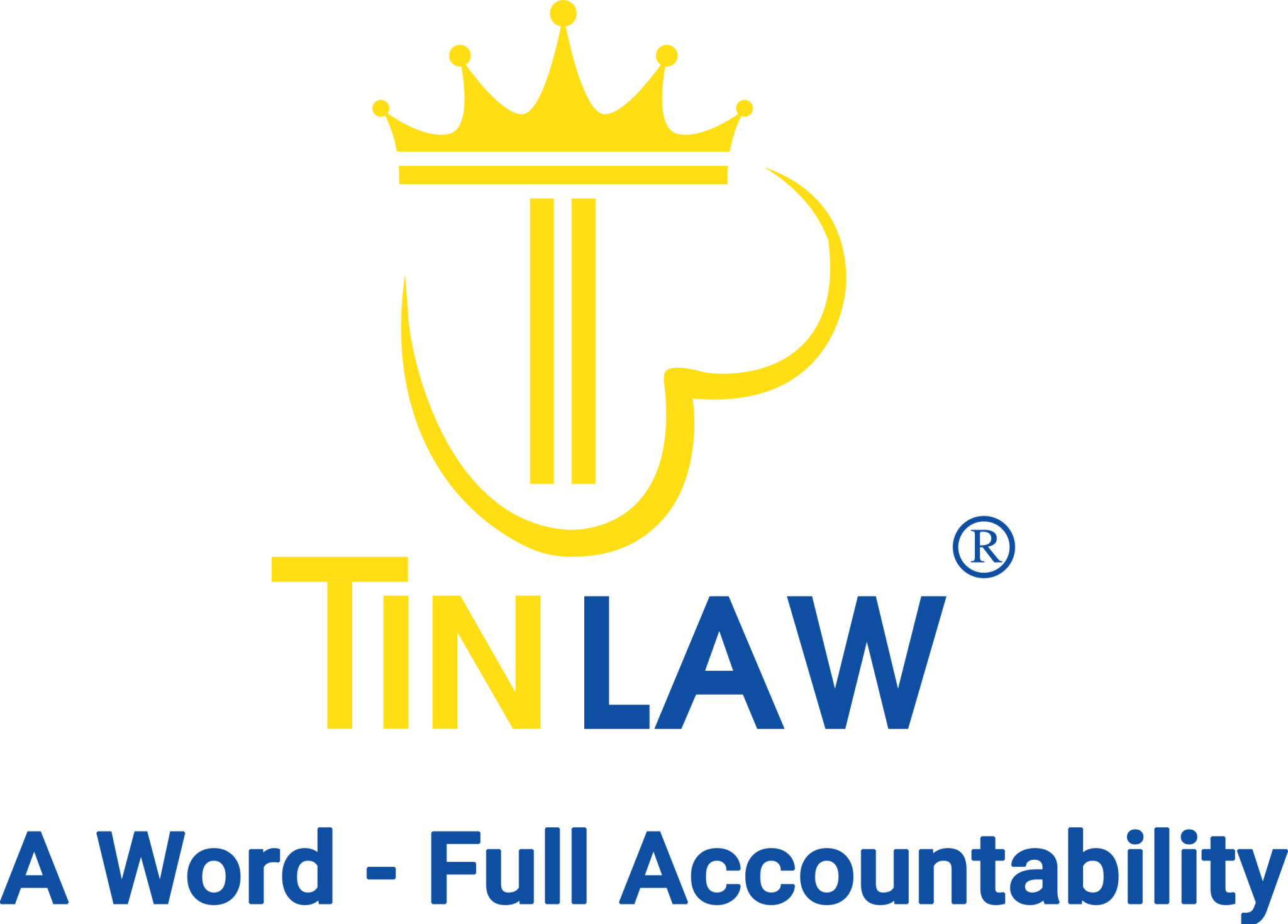Logo registration is an essential step in protecting your brand. This process affirms intellectual property ownership, builds credibility, and enhances brand recognition for your business. In this article, TinLaw’s trademark registration services provide you with a comprehensive overview of the requirements for registering logo copyrights.
What is logo registration?
Logo registration is a legal procedure carried out by individuals or organizations to protect their intellectual property rights over a logo. Once a logo is registered, the business obtains exclusive rights to use it and can prevent others from copying or using it unlawfully. Registering a logo protects your brand from legal disputes and strengthens its reputation in the market.
What are the benefits of registering a logo?
Logo registration offers numerous practical benefits for businesses in protecting their brand. Below are the key advantages of logo registration:
- Logo registration is a prerequisite for protecting intellectual property rights.
- A registered logo becomes a valuable intangible asset, enhancing the company’s credibility and quality in the market.
- The logo registration certificate serves as essential legal proof, safeguarding business rights in ownership disputes.

What are the benefits of registering a logo?
- A registered logo grants the owner exclusive rights to use it within Vietnam’s territory. This provides a competitive advantage and protects against unfair competition.
- The owner can transfer or license the logo to other parties when no longer needed, generating revenue through such transactions.
Logo registration offers significant benefits to businesses and serves as a critical component of a long-term development strategy.
Regulations on business logo registration
According to Article 14 of the Intellectual Property Law, business logos can be protected under copyright in the following forms:
Logo as a work of fine art or applied art
Under Article 14 of the Intellectual Property Law, applied art works are creations featuring lines, colors, shapes, and compositions with practical utility. These works are associated with handcrafted or industrially manufactured items. Examples include graphic designs (logos, product packaging), character designs, fashion designs, and artistic shaping of products.
Applied art works require a high level of creativity and are not easily replicable by individuals with average knowledge in the field. However, designs that serve purely functional purposes are not covered under this protection (as stipulated in Decree No. 17/2023/ND-CP).
Logo as a Trademark
A trademark is a symbol used to distinguish the goods and services of one organization or individual from those of others.
Registering a business logo as a work of fine art generally provides weaker protection compared to trademark registration. Under copyright protection, infringement is recognized only if the logo is identical or highly similar to another business’s logo. In contrast, trademark protection considers even similar or overlapping elements as violations.

Regulations on business logo registration
In summary, registering a business logo is essential to safeguarding brand rights. Understanding the relevant regulations helps businesses choose the most appropriate form of protection.
What does a logo registration dossier include?
To successfully register a logo, businesses must determine the correct form of registration required. This ensures accurate preparation of the application dossier.
Applied art works form
According to Article 50 of the Intellectual Property Law, the dossier for registering a logo as an applied art work must include the following documents:
- Application form for copyright and related rights registration;
- Two copies of the work to be registered for copyright or two copies of the fixed form of the object for related rights registration;
- Power of attorney, if the applicant is an authorized representative for copyright or related rights registration;
- Documentation confirming ownership of the work through independent creation, assignment of creative tasks, contractual agreements, inheritance, or transfer of rights;
- A written commitment of consent from co-authors, if the work is a collaborative creation;
- Written approval from co-owners, if the copyright or related rights are jointly owned.
- Author’s or work owner’s Citizen ID Card (Certified copy);
- Company’s Business Registration Certificate (Certified copy,) if the owner is a company.
Proper preparation of these documents will ensure a smooth and efficient logo ownership registration process.
Trademark form
The dossier for registering a logo as a trademark includes the following documents:
- Five trademark (logo) samples, each measuring 8 x 8 cm;
- A list of goods and services to be registered;
- Trademark application form;
- Power of attorney or authorization contract (if using a registration service);
- Documents related to priority rights, inheritance, or gifting (if applicable);
- Receipt for trademark registration fee payment.

What does an exclusive logo registration dossier include?
Having all these documents prepared will streamline the trademark registration process, ensuring the best protection for your products and brand.
Logo copyright registration procedure
Follow these steps to register logo copyright:
Step 1: Prepare the logo for registration
The logo to be registered should be designed by you or created by a professional design service based on the owner’s concept. To enhance the likelihood of copyright approval, focus on originality and creativity. Avoid copying or reusing existing ideas.
Step 2: Choose the type of logo registration
Logos can be registered in either of the two forms mentioned above. To ensure the broadest protection, it is recommended to register the logo as a trademark with the Intellectual Property Office. This will maximize the owner’s rights under the Intellectual Property Law.
Step 3: Prepare and submit the dossier
Depending on the registration type, prepare the relevant documents listed above. Submit the application either in person or via post to the appropriate authority:
For logo copyright registration (author’s rights): submit the application to the Copyright Office.
For logo trademark registration: submit the application to the Intellectual Property Office.
Step 4: Dossier assessment
After submission, the Intellectual Property Office or Copyright Office (depending on the registration type) will evaluate the application.
Assessment time for logo copyright registration (author’s rights): 40–45 working days.
– Assessment time for logo registration (trademark): 24–30 months.
Step 5: Issuance of the logo registration certificate
Once the application is deemed valid, the Intellectual Property Office or Copyright Office will issue the Logo Registration Certificate to the owner. If the application is rejected, a detailed explanation will be provided.

Guidance on logo registration procedure
The logo copyright registration process requires thorough preparation and adherence to regulations. Following each step carefully will help you avoid errors and complete the registration efficiently.
Logo registration fees
The fees for logo registration procedures are set by the state as follows:
- Application submission fee: 180,000 VND per group (up to 6 products/services). For groups with more than 6 products/services, an additional fee of VND 30,000 applies for each product/service from the 7th onward;
- Priority request fee (if applicable): VND 600,000 per application;
- Content examination fee: VND 300,000 per group (up to 6 products/services). For groups exceeding 6 products/services, an additional VND 60,000 is charged for each product/service from the 7th onward;
- Information search fee: VND 60,000 per group (up to 6 products/services). For groups with more than 6 products/services, an additional VND 24,000 is charged for each product/service from the 7th onward;
- Application publication fee: VND 120,000;
- Registration fee for the Logo Registration Certificate: VND 120,000;
- Issuance fee for the Logo Registration Certificate: VND 120,000;
- Publication fee for the Logo Registration Certificate: VND 120,000.

Total logo registration fees
Thus, the total cost for registering a logo is VND 1,360,000. This cost applies to one logo within one group of products/services (up to 6 products/services), which includes VND 1,000,000 (application submission and related fees) + VND 360,000 (fees for the issuance of the Logo Registration Certificate).
Trusted logo registration services at TinLaw
TinLaw is proud to offer reliable logo registration services, helping clients complete the licensing process efficiently and effectively.
- High expertise: Our team of experienced professionals optimizes the process, ensuring all documents are handled accurately and without errors.
- In-Depth consultation: Clients receive detailed advice on procedures and brand protection strategies, increasing the likelihood of successful registration.
- Efficient processing: TinLaw guarantees fast processing, reducing the time needed for logo registration and minimizing wait times for certification.
- Competitive pricing: We deliver high-quality services at reasonable fees, suitable for all clients while ensuring cost efficiency and excellent results.
- Comprehensive support: TinLaw supports clients throughout the entire process, from preparation to receiving results, resolving any issues that arise during registration.
logo-registration-6
Trusted logo registration services at TinLaw
With these strengths, TinLaw is the ideal legal partner to ensure maximum protection for your brand. Contact us today for dedicated support!
Frequently asked questions about logo registration
During the logo registration process, many clients often have questions about timelines, costs, and other related matters. Below are some of the most common questions TinLaw receives:
Where can I register a logo copyright?
If you are registering a logo copyright (author’s rights), you must apply at the Copyright Office. For logo trademark registration, the application should be submitted to the Intellectual Property Office.
Should I register a company logo or a personal logo?
Whether to register a company logo or a personal logo depends on your business purpose and operational structure. A company logo protects your brand and enhances credibility, while a personal logo safeguards creative ideas.
Is a logo registered in Vietnam protected internationally?
Logo protection follows the principle of territoriality. A logo registered in one country is only protected within that country. To protect a logo internationally, the owner must apply for registration directly in the desired foreign countries.
Conclusion
Logo registration is an essential step to safeguarding your brand and intellectual property rights. Contact TinLaw today for consultation and support with your logo registration process. We are committed to helping you maximize your benefits and elevate your brand value effectively!










